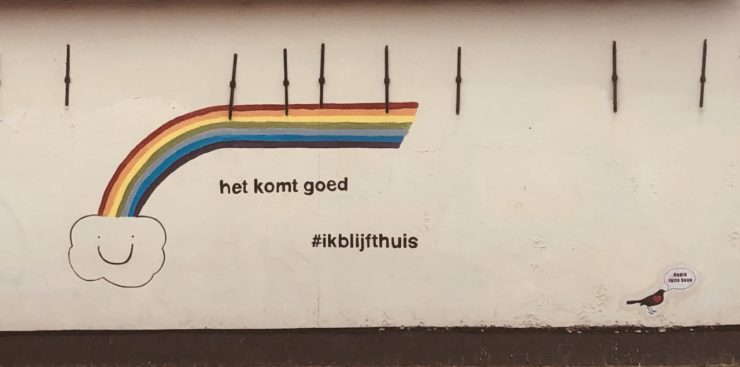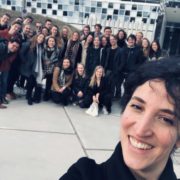Blog
Dialogue is key. So is the connection to the students. But how can one keep it alive in times of social distancing?

I remember that day. I taught three seminars back to back, and at the end of the last one I saw one of my students waiting for the others to leave the classroom before walking up to me. And then I understood why this young, energetic and bright student had wanted to speak with me in private – he was very anxious about the spread of Covid19, he told me, because he suffered from severe asthma problems and was truly worried for his health. The fact that he was an international student also mattered, as dealing with health issues in a foreign country can be a daunting experience. He thanked me for having reminded all the students to wash their hands and asked me whether it would be OK, from then on, to preventatively self-isolate. I said yes, of course – but by the time I got home I realized that he would not have to act alone. The university had decided to temporarily suspend all educational activities and, shortly thereafter, to move all the education online.
What then? I had spent the day discussing with the students how to start working on their essays, breaking up the process in smaller-sized chunks (selecting and phrasing a research question; finding and analyzing relevant primary and secondary sources; breaking down the argument in its key components; writing an introduction …) and now I worried that I would lose track of my BA students’ work. Meanwhile, I knew that many of the MA students of the International Relations in Historical Perspective program, which I coordinate, were abroad doing their internship in a range of different locations, including Malaysia, Algeria, India, Cuba, Mozambique, Canada and Australia. Were they safe? How were they coping? I soon realized that the biggest challenge for me would be to keep up the communication – or rather the connection – with my students.
The first weeks were difficult. We are all dealing with an unprecedented emergency on a global scale and we do not know what the future might hold. But looking back, there were three main things that helped me to keep the connection alive:
1. First, re-organise and adjust. It took a bit of experimenting in order to assess which online platform could help me monitor the students’ progress when writing their essays; or how to organize the exam now that I could not monitor the students in person. This year I decided to go for Blackboard, for both assignments. Ultimately, everyone will decide for themselves what works best for them – but taking that time to experiment and adjust is crucial. And just as crucial is, once things are clearer for the lecturer, being clear with the students about what is expected of them and by when, while also retaining a bit of flexibility if some struggle to keep up with the workload, especially during these difficult times.
2. Second, keep in touch. Given that I have several coordination duties, reducing email traffic was really quite important for me. BlackBoard and Teams helped me to find alternative ways to keep in touch – and not just vis-à-vis the students but also the colleagues. Liaising with the academic staff in my Department, as well as with the UU Corona office and the International Office, has been key in order to ensure that myself and my colleagues could know that our students were, as much as it is possible to ascertain these days, safe. And knowing that I could cc the study advisors made a crucial difference when being contacted by students who were struggling to adapt to the new situation. Of course we also had issues, but keeping in close contact (or at least trying to!) really does make a difference. While social distancing may seem to suggest otherwise, in fact nobody has to face this challenge alone.
3. Finally, accept that mishaps will happen – and that this is OK. Some days will not be productive. This is also OK. And this is a message which is important to project vis-à-vis the students, but it is of crucial importance also for the members of staff themselves. As Mathil wrote in this blog, things do not always go well, especially during such challenging times as the ones we are experiencing today. If you find yourself struggling do take a break, open the window, let in some fresh air (perhaps while listening to one of my favourite songs, Aria, by Giovanni Allevi) and then go with the flow. Some things may not work today, but they could work tomorrow. And if not, there may be an alternative solution somewhere down the line.
This situation is not easy for anyone. I am an international myself, I live on my own and I have not seen my family since Christmas. Both my parents fall in the high risk categories and it has been tough to see my friends’ faces get paler and paler over Skype and WhatsApp as they spent weeks living in an enforced lock-down in a country where the health-system is seriously struggling. But we are all in this together. And, as Goethe put it, ‘to know someone who thinks and feels with us, and who, though distant, is close to us in spirit, makes the earth for us an inhabited garden’. So let’s make time for each other, and let’s keep connected. #UUgotthis :)
 14 april 2020
14 april 2020
U moet ingelogd zijn om te reageren, gebruik het formulier aan de linkerkant om in te loggen met uw solis gegevens.


